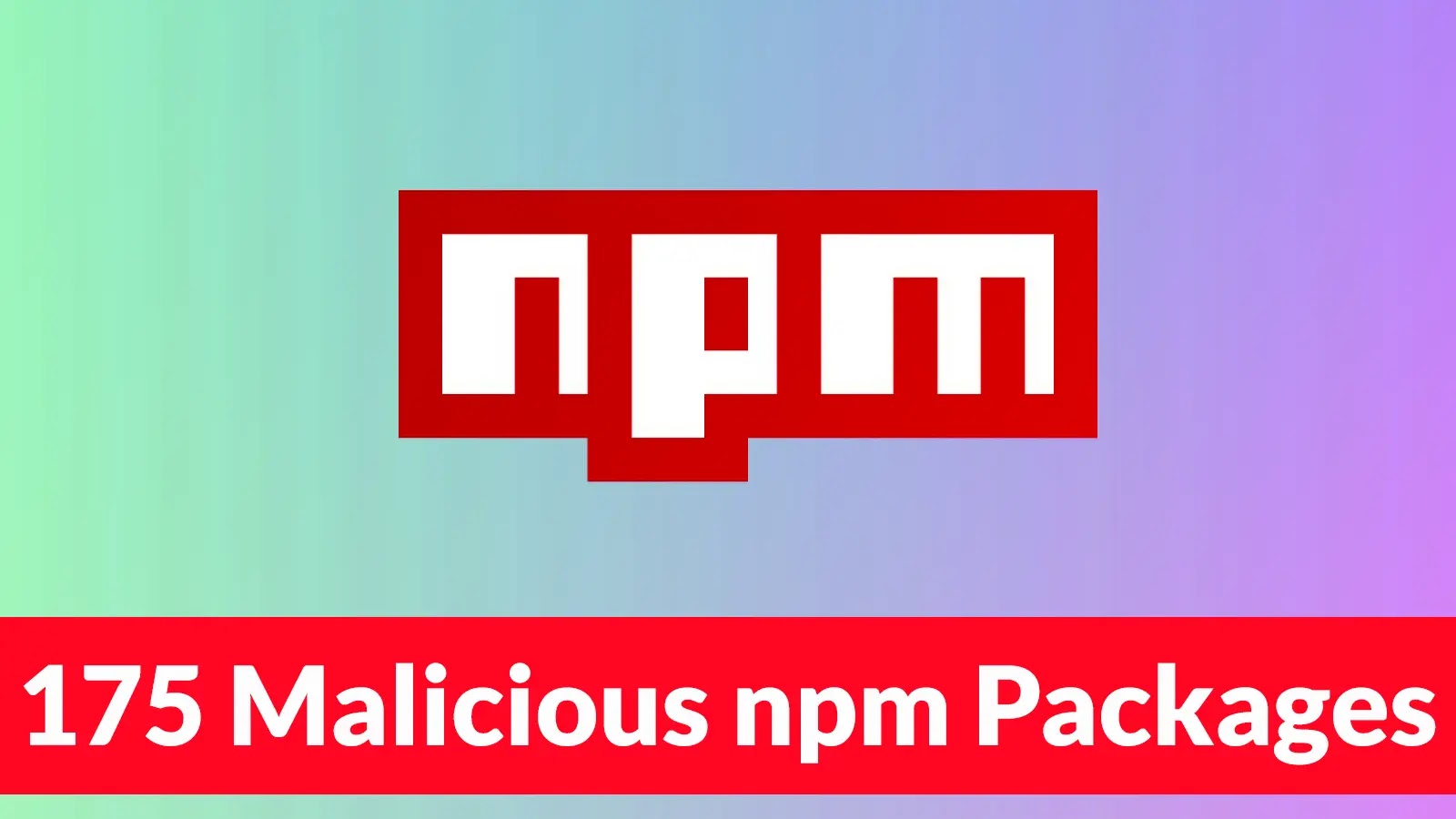
175 Malicious npm Packages With 26,000 Downloads Attacking Technology, and Energy Companies Worldwide
In the intricate landscape of modern software development, the integrity of open-source components is paramount. Yet, a recent discovery by Socket’s Threat Research Team has cast a stark light on the persistent and evolving threats lurking within public repositories. A sophisticated phishing campaign, dubbed “Beamglea,” has leveraged 175 malicious npm packages, collectively tallying over 26,000 downloads, to target critical sectors including industrial, technology, and energy companies worldwide. This incident underscores a concerning trend: the novel abuse of widely trusted infrastructure to facilitate attacks against high-value targets, demanding immediate attention from developers, security teams, and organizations alike.
The “Beamglea” Campaign: A Deceptive New Frontier
The “Beamglea” campaign is noteworthy for its cunning methodology. Instead of traditional malware delivery, attackers repurposed the npm public registry and the unpkg.com content delivery network (CDN) to host sophisticated redirect scripts. These scripts, embedded within seemingly innocuous npm packages, are designed to funnel unsuspecting users and potentially their systems towards malicious phishing sites. The consistent artifacts found across all 175 packages allowed researchers to identify and name this coordinated attack, revealing a calculated effort to breach a specific set of over 135 industrial, technology, and energy companies.
Understanding the Mechanics: npm and unpkg.com Abuse
The npm registry is a cornerstone of the JavaScript ecosystem, serving billions of package downloads monthly. Its widespread use, coupled with the unpkg.com CDN for efficient content delivery, makes it an attractive vector for malicious actors. In the “Beamglea” campaign, attackers capitalized on the trust associated with these platforms. By publishing packages that appear legitimate but contain hidden redirect scripts, they weaponized the very infrastructure designed to facilitate development. When these malicious packages are downloaded and integrated into projects, the embedded scripts can execute, leading to the redirection of users to attacker-controlled domains engineered for credential harvesting or other nefarious purposes.
Targeted Sectors: Industrial, Technology, and Energy
The choice of targets – industrial, technology, and energy companies – is particularly concerning. These sectors often handle sensitive data, critical infrastructure, and intellectual property. A successful breach in any of these areas could have far-reaching consequences, from data theft and operational disruption to national security implications. The deliberate targeting suggests a high level of reconnaissance by the attackers, aiming for maximum impact by compromising organizations with significant strategic value.
Remediation Actions and Proactive Defense
Defending against supply chain attacks like “Beamglea” requires a multi-layered approach. Organizations and developers must adopt stringent security practices to mitigate the risks associated with third-party dependencies.
- Dependency Auditing: Regularly audit all third-party npm packages for known vulnerabilities and suspicious behavior. Utilize tools that can analyze transitive dependencies – packages that your direct dependencies rely on.
- Source Code Review: Implement thorough code review processes for any new dependencies introduced into a project, focusing on package scripts, post-installation hooks, and unusual file declarations.
- Package Integrity Verification: Employ integrity checks (e.g., Subresource Integrity (SRI) hashes) where possible to ensure that downloaded packages have not been tampered with.
- Least Privilege: Follow the principle of least privilege for build environments and CI/CD pipelines, limiting the permissions of processes that interact with external registries.
- Network Monitoring: Implement robust network monitoring to detect unusual outbound connections or suspicious redirects originating from development environments or production systems.
- Supply Chain Security Tools: Integrate supply chain security platforms that can automatically scan, monitor, and alert on malicious packages within your codebase.
Essential Tools for Detection and Mitigation
To proactively combat threats similar to “Beamglea,” several tools can be invaluable:
| Tool Name | Purpose | Link |
|---|---|---|
| Socket | Supply chain security platform for open-source dependency analysis and threat detection. | https://socket.dev/ |
| npm Audit | Built-in npm command for identifying known vulnerabilities in dependencies. | https://docs.npmjs.com/cli/v9/commands/npm-audit |
| Snyk Open Source | Scans for vulnerabilities in open-source dependencies and offers remediation advice. | https://snyk.io/product/open-source-security/ |
| Dependabot | Automates dependency updates and vulnerability patching within GitHub repositories. | https://github.com/dependabot |
| OWASP Dependency-Check | Identifies known vulnerabilities in project dependencies. | https://owasp.org/www-project-dependency-check/ |
Looking Ahead: The Evolving Threat Landscape
The “Beamglea” campaign serves as a critical reminder that attackers are constantly innovating. Their ability to weaponize trusted infrastructure like npm and unpkg.com signals a shift in tactics, making traditional perimeter defenses less effective. The incident highlights the need for continuous vigilance, proactive security measures, and a deep understanding of the software supply chain. Organizations must embed security into every stage of the development lifecycle, fostering a culture where security is a shared responsibility, not an afterthought.
Key Takeaways
The discovery of the “Beamglea” malicious npm package campaign underscores several critical points: the sophisticated nature of modern supply chain attacks, the persistent threat to high-value industrial, technology, and energy sectors, and the urgent need for robust dependency management and auditing. With over 26,000 downloads across 175 malicious packages, this campaign exemplifies how attackers can leverage trusted public resources for widespread compromise. Organizations must prioritize comprehensive security strategies to protect their development pipelines and critical assets from these evolving threats.





